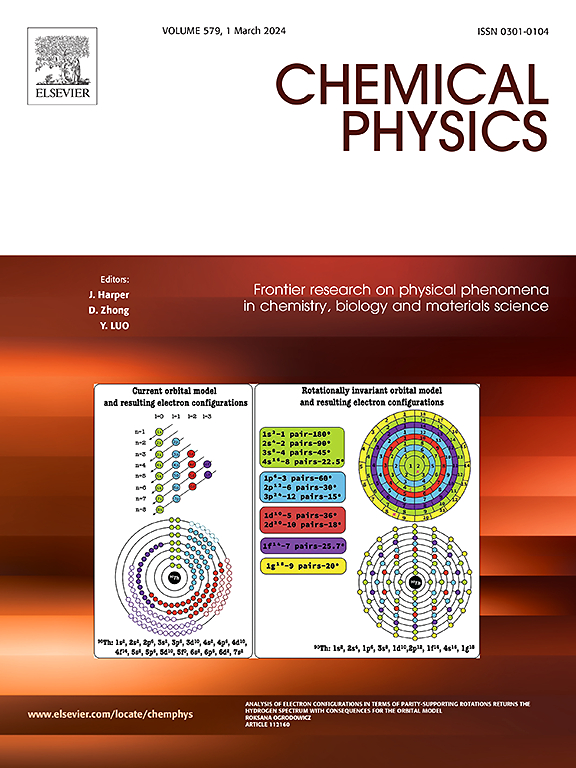高压下乙醇中双层膜的总阻抗
IF 2.4
3区 化学
Q4 CHEMISTRY, PHYSICAL
引用次数: 0
摘要
本文提出了高压下全电极极化阻抗的解析式。这个公式的要点是:“电极极化在足够高的频率下并不占主导地位”。利用这一原理,我们能够拟合电极极化效应,并从低频区域的拟合中提取样品的静态电导率和介电常数,无论是在熔融温度附近的固体形式还是液体形式。除此之外,我们得到了双层指数的温度依赖性,并证明了这种依赖性在乙醇的固体形式下与液态相比是平坦的。本文章由计算机程序翻译,如有差异,请以英文原文为准。
Total impedance of the double layer in ethanol at high pressure
In this research we propose in analytical form the formula for full electrode polarization impedance measured at high pressures. The main point in this formula is: “electrode polarization does not dominate at sufficiently high frequencies”. Using this principle, we are able to fit the electrode polarization effects and extract static conductivity and dielectric permittivity of the sample from the fit in the low frequency region, both in solid and liquid forms near the melting temperature. Beside that, we obtain the temperature dependence of the double layer exponent and demonstrate this dependence does flatten in the solid form of ethanol in comparison to the liquid state.
求助全文
通过发布文献求助,成功后即可免费获取论文全文。
去求助
来源期刊

Chemical Physics
化学-物理:原子、分子和化学物理
CiteScore
4.60
自引率
4.30%
发文量
278
审稿时长
39 days
期刊介绍:
Chemical Physics publishes experimental and theoretical papers on all aspects of chemical physics. In this journal, experiments are related to theory, and in turn theoretical papers are related to present or future experiments. Subjects covered include: spectroscopy and molecular structure, interacting systems, relaxation phenomena, biological systems, materials, fundamental problems in molecular reactivity, molecular quantum theory and statistical mechanics. Computational chemistry studies of routine character are not appropriate for this journal.
 求助内容:
求助内容: 应助结果提醒方式:
应助结果提醒方式:


